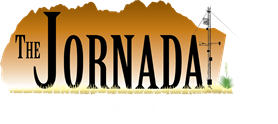| Title | Would managing a flerd benefit your bottom line? |
| Publication Type | Journal Article |
| Year of Publication | 1999 |
| Authors | Anderson D.M. |
| Journal | Pastoral Memo-Southern Rangelands, Agriculture, Western Australia |
| Volume | 5 |
| Pagination | 26-27 |
| Date Published | 1999 |
| ISBN Number | 0726-9382 |
| Abstract | Reducing predation losses, cutting conventional fencing costs, eliminating unproductive search time to locate animals and promoting uniform utilisation of the vegetation resource fee all resource managers who practise mixed-species stocking. These four management challenges can be turned into management opportunities when coupled with the ability to modify small ruminant behaviour so they remain close to cattle under free-ranging conditions. Sheep and goat flocks normally forage separate from cattle herds. However, if small ruminants, preferably young animals, are socialised with cattle the adults will form one or more flerds, i.e. small ruminants that consistently remain close to cattle under free-ranging conditions. |
| URL | /files/bibliography/642.pdf |


